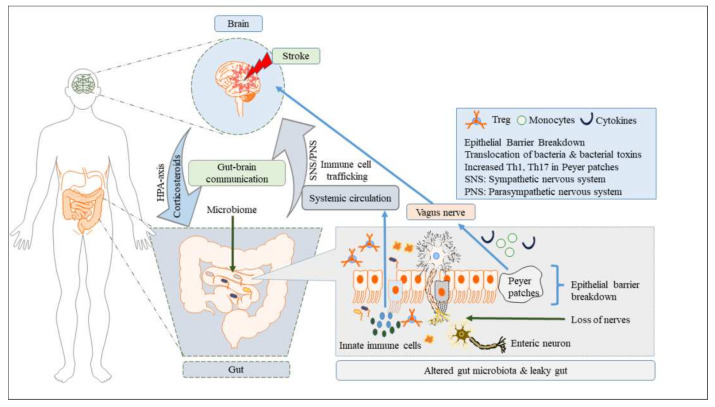Figure 1.
Effects of stroke on the gut–brain axis. Following cerebral stroke, gut dysbiosis causes loss of enteric nerves, increased intestinal-barrier permeability, reduced mucus production, loss of goblet cells, thinning of the mucus barrier, and increased sympathetic activity in the intestinal wall, all of which contributes to intestinal inflammation and an exaggerated immune response. These events in turn disrupt intestinal and systemic immune homeostasis, resulting in poor stroke treatment prognosis.

